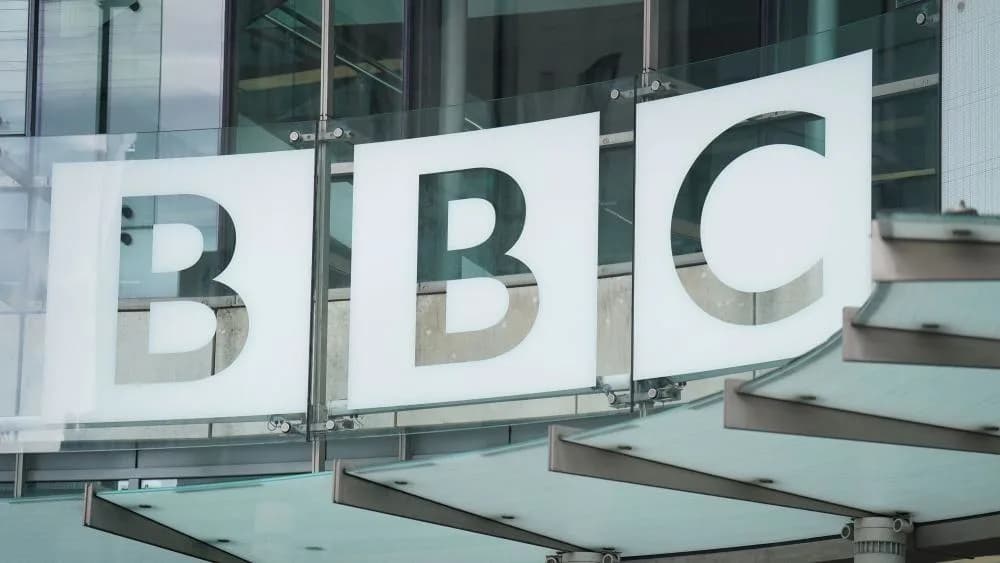We're loading the full news article for you. This includes the article content, images, author information, and related articles.
As a BBC journalist remains unable to leave Vietnam, the incident casts a harsh light on the state of press freedom, echoing growing concerns over media harassment and government pressure facing journalists in Kenya and across East Africa.

LONDON, UK – The British Broadcasting Corporation (BBC) on Tuesday, October 28, 2025, expressed deep concern for one of its journalists, a Vietnamese national, who has been prevented from leaving Vietnam for several months. The journalist, who is based in Thailand, had returned to Vietnam in August 2025 to visit family and renew their passport. According to a BBC statement, Vietnamese authorities have since withheld the renewed passport and the journalist's national ID card, subjecting them to "multiple days of questioning" about their work. The BBC has urged the Vietnamese government to immediately allow the journalist to return to their post.
This case unfolds against a backdrop of a severe and worsening climate for press freedom in the one-party state. Vietnam is ranked 174th out of 180 countries in the 2024 World Press Freedom Index by Reporters Without Borders (RSF), which describes the country as one of the world's biggest prisons for journalists. The Committee to Protect Journalists (CPJ) corroborates this, ranking Vietnam as the fifth-worst jailer of journalists globally in its 2023 census, with at least 19 journalists imprisoned. All media in Vietnam is state-controlled, and laws such as Articles 109, 117, and 331 of the Penal Code are frequently used to imprison reporters and bloggers for up to 20 years for "propaganda against the state" or "abusing democratic freedoms."
The timing of this revelation is diplomatically sensitive. Tô Lâm, the General Secretary of the Communist Party of Vietnam, arrived in London on Tuesday, October 28, 2025, for a three-day official visit at the invitation of UK Prime Minister Keir Starmer. The visit is expected to culminate in the elevation of UK-Vietnam diplomatic ties to a “Comprehensive Strategic Partnership,” placing the UK alongside partners like China, Russia, and the United States. This upgrade aims to deepen cooperation in trade, security, and technology.
Bilateral trade between the two nations has been growing, reaching £8.1 billion ($10.8 billion) in 2024, bolstered by the UK-Vietnam Free Trade Agreement effective since 2021. A spokesperson for the UK's Foreign Office stated that the UK's "position and track record defending media freedom is clear" and that they continue to raise concerns about the harassment of journalists and activists directly with their Vietnamese counterparts. However, the incident highlights the complex balance Western democracies, including the UK, must strike between upholding human rights and pursuing lucrative economic and strategic partnerships.
While geographically distant, the plight of the journalist in Vietnam serves as a critical case study for Kenya. Kenya's own press freedom ranking has seen a significant decline, falling 48 places in three years to 117th out of 180 in the 2025 World Press Freedom Index. Media observers attribute this slide to increased government pressure, harassment of journalists, and censorship, particularly during politically sensitive periods like the 2024 anti-government protests. In October 2025, the Kenyan government defended its handling of the protests against UN concerns over police brutality and restrictions on media, stating that its actions were lawful and that investigations were underway by independent bodies.
The situation in Vietnam underscores a global trend where economic diplomacy can overshadow human rights concerns, a dynamic relevant to Kenya's foreign relations. Kenya maintains strong, historic ties with the UK, its largest European foreign investor, with cooperation focused on trade, security, and development. At the same time, Kenya's diplomatic engagement with nations like Vietnam is more limited. The absence of a Kenyan embassy in Hanoi complicates consular assistance for Kenyans, as seen in the recent case of a Kenyan citizen facing a death sentence for drug trafficking, which required diplomatic intervention from the Kenyan mission in Thailand.
For Kenyan journalists, the incident is a stark reminder of the risks involved in critical reporting, especially in authoritarian states. Journalists in the East Africa region frequently face detention, harassment, and physical threats. The case of the BBC journalist, detained simply for renewing a passport, illustrates how states can use bureaucratic controls to silence and intimidate the press. This serves as a cautionary tale for the Kenyan media community, highlighting the importance of robust legal protections, media solidarity, and international advocacy to safeguard journalistic freedom both at home and abroad.
Keep the conversation in one place—threads here stay linked to the story and in the forums.
Sign in to start a discussion
Start a conversation about this story and keep it linked here.
Other hot threads
E-sports and Gaming Community in Kenya
Active 9 months ago
The Role of Technology in Modern Agriculture (AgriTech)
Active 9 months ago
Popular Recreational Activities Across Counties
Active 9 months ago
Investing in Youth Sports Development Programs
Active 9 months ago